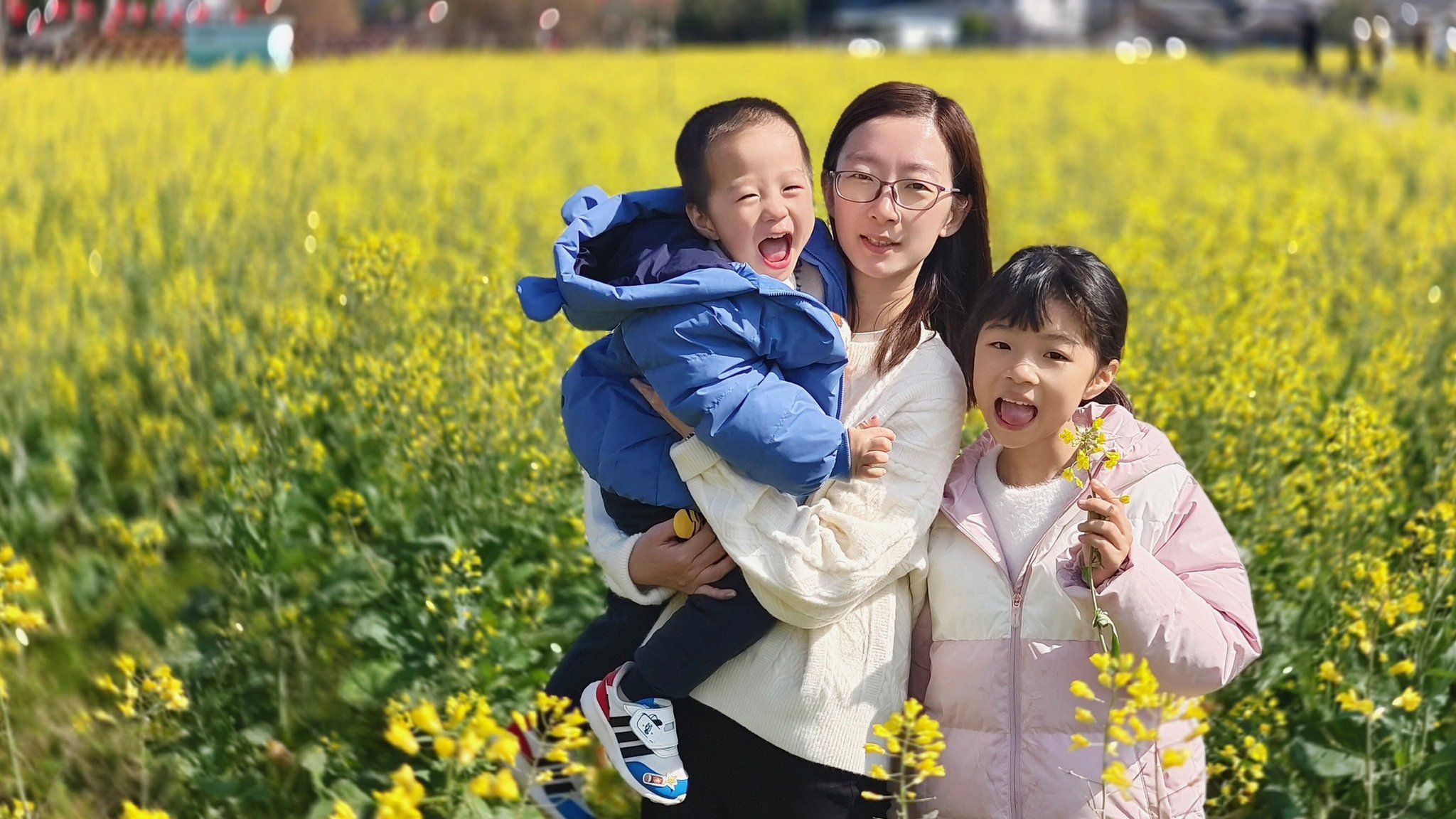ARTICLE AD BOX
 Image source, Xiao Zhuo
Image source, Xiao Zhuo
Kathy Zhuo wants to save more money as China's economy slows
By Sylvia Chang
BBC Chinese, Hong Kong
During the pandemic, Kathy Zhuo and her husband were forced to take a 50% pay cut. It was a huge blow because she also had to take care of her mother, who was diagnosed with cancer five years ago.
"We barely had money left each year. I felt insecure but didn't know what to do," says the 36-year-old mother of two, who lives in Fujian, a city in southern China.
The shock to her family's finances prompted Ms Zhuo to join the trend of young Chinese people seeking partners - or da zi - with similar interests online. But instead of travelling or exercising together, she has teamed up with people who want to save money.
The hashtag "saving da zi" first emerged on Xiaohongshu, China's version of Instagram, in February 2023. It has attracted 1.7 million views so far, according to data analysis firm Newsrank. On Weibo, topics about so-called saving partners have been viewed millions of times.
The trend shows a "low confidence in the future economy", says Lu Xi, a public policy professor at the National University of Singapore. Even though the Chinese economy grew faster than expected in the first quarter, it still faces a deepening property crisis, falling foreign investment and mounting local government debts.
Ms Zhuo feels lucky that she is working in the clean energy sector, an expanding industry which is estimated to have contributed around 40% of the country's economic growth last year. However, she feels driven to "prepare for danger" as many of her friends and family are losing their jobs.
Image source, Getty Images
Image caption,In China, women usually manage regular household expenses
In February this year, Ms Zhuo joined several online saving groups, with most members being women aged between 20 and 40. Every day, they log their budget and expenses. They also help to stop each other from making impulse purchases.
Ms Zhuo says that one member was tempted to buy a luxury bag that cost 5,000 yuan ($690; £560) but after talking to other women in the group settled for a much cheaper, second-hand bag.
She is surprised so many others are doing the same, and says she feels a sense of camaraderie with her saving partners. Just a month after teaming up with a partner, she says her spending was down by 40%. She now aims to save 100,000 yuan this year.
Wen Zhong, a 30-year-old primary school teacher, says she has cut back her online shopping with the help of her saving partners.
Instead, she now spends more time reading and weaving. She has also started selling her handmade products at a local market, which brings in extra cash. More importantly, Ms Wen says, this has helped her shift towards a minimalist lifestyle, which she appreciates more.
China already has one of the world's highest saving rates. Official figures show that in 2023 the country's households put about 138 trillion yuan in the bank, an almost 14% increase from a year earlier.
But Dr Lu says this high level of savings may prove to be a major problem for the Chinese government. Normally the country's central bank can help boost the economy by cutting interest rates as it makes saving less attractive. However, if people continue to avoid spending and save their money instead it could blunt the bank's ability to influence the economy.
Meanwhile, some women have opted for a more traditional saving method - keeping cash at home. It is unusual as China has gone largely cashless, with so many people using apps like Alipay and WeChat Pay.
Image source, Handout
Image caption,Ms Chen thinks her family will need at least five million yuan in savings
Ms Chen, a 32-year-old who runs a beauty parlour in the central province of Henan, and did not wish to reveal her first name, says she withdraws most of her income from the bank every month and puts it in a box. Once it reaches 50,000 yuan, she plans to return it to the bank as a fixed deposit.
"In the past, I didn't have any saving plan but still had some money left. Now, it has become more challenging to save," she says.
For starters, China's economic slowdown has meant that her beauty parlour has lost a significant number of clients and many of her regulars have cut their spending. Plus, Ms Chen and her husband are only children, which means they have to take care of their elderly parents.
The couple also have two sons and Ms Chen worries about saving up enough to buy houses for them eventually. In China, parents usually buy a home for their son when he marries.
By her estimation, Ms Chen and her husband need at least five million yuan in savings. But she thinks even that will probably not be enough as she is now pregnant again.
"Having cash in hand makes me feel less anxious," she says. "I feel safe and satisfied seeing stacks of banknotes getting thicker and thicker."

 8 months ago
45
8 months ago
45








 English (US) ·
English (US) ·